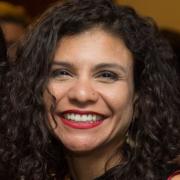As a fellow for New America Media, the country’s largest collaboration and advocate for 2,000 ethnic news media outlets, I was tasked with finding an immigrant woman to interview for a story. Oh boy.
As I began searching, I was shocked to hear from so many documented immigrant women who were afraid to speak to me for fear that they would be apprehended by local police or immigration authorities. These women came from all parts of the world -- El Salvador, Nepal, Kenya and Haiti -- and now live on both coasts of our country. They have reason to be fearful.
Racial profiling of immigrants has spiked since certain states have passed laws allowing local police to enforce federal immigration statutes. Some of these laws go as far as making landlords, school principals and church pastors immigrant law enforcers by requiring them to check the immigrant status of all families in their care. The Catholic Church has been so negatively impacted by these laws that last month it released an entire page in all of its bulletins nationwide condemning such laws:
The (Alabama) law would have a chilling effect on their ministries – among other things, these church leaders feared that the prohibition on "harboring" would extend to activities like "encourag(ing immigrants) to attend Mass or giv(ing) them a ride to Mass;" "counsel(ing) them in times of difficulty or in preparation for marriage;" and inviting "them to come to Alcoholic Anonymous meetings or other recovery groups at our churches."
Other states have adopted similar laws that threaten the Church’s ministry to undocumented immigrants. On March 27, 2012, the U.S. Conference of Catholic Bishops and several other Christian denominations filed an amicus brief with the U.S. Supreme Court in the case of Arizona v. United States. The brief discusses how the Arizona law and many state immigration laws like it threaten the Catholic mission to provide food, shelter, and other care to all. Aside from Alabama and Arizona, Georgia, Oklahoma, South Carolina and Utah have enacted laws that generally make criminal the "harboring" of undocumented immigrants.
Is our most cherished freedom truly under threat? Among many current challenges, these state immigration laws affect the religious liberty of the Church because they have criminalized certain acts of Christian charity and pastoral care. Religious liberty is more than freedom of worship; it includes our ability to make our contribution to the common good of all Americans without having to compromise our faith. Without religious liberty properly understood, all of us suffer, including those who seek a better life here in the United States.
Both in the news and anecdotally, I have heard many immigrants and even U.S.-born citizens who are thought to “look” like immigrants being harassed by the police. Here is a snapshot of those:
• Last year, a German Mercedes-Benz executive was apprehended in Alabama for not having a U.S.-issued driver’s license.
• Around the same time, Arizona’s Sheriff Joseph Arpaio was found by the U.S. Department of Justice [DOJ] to have engaged in a pattern or practice of unconstitutional policing for systematic racial profiling of Latinos. According to a letter by DOJ, the Maricopa County Sheriff’s Office “unlawfully stops, detains, and arrests Latinos; and unlawfully retaliates against individuals who complain about or criticize [Arpaio’s] policies or practices.” Prior to the DOJ lawsuit, Arpaio also known as “America’s Toughest Sheriff” prided himself in shackling and humiliating detained immigrants in Arizona’s punishing dessert.
• I attended a conference two years ago, in which residents of Arizona and Utah shared the fallout from anti-immigrant laws there. Carmen Cornejo, a professional translator and mother who lives in Arizona, said so much tension and animosity has arisen from Arizona’s SB 1070 that her son was questioned by police simply for “looking suspicious” on his walk home from the corner store. “(Arizona’s law) SB 1070 brings this antagonism between the Latino community and the rest of the community in a painful way,” she said. “It is very, very nasty.”
• At that same conference, Cori Redstone, a community organizer in Utah, brought up this civil rights infringement in the name of citizen immigration law enforcement. A list of Latino families, their social security numbers and personal information like “baby due 4/4/10″ was circulated offline and on the Internet, causing for some families to receive threatening phone calls and face harassment. Not all the families on the list were undocumented, yet their privacy was violated, Redstone said. Ever since Utah’s anti-immigrant law passed two years ago, the Church of Latter Day Saints issued a statement calling for “the strongest desire to do what is best for all of God’s children.”
The systematic racial profiling of immigrants and anyone who is thought to “look” like an immigrant has ramifications for the health of every community in this country. In a nation of immigrants like ours, I, the U.S.-born daughter of a Cuban father and Puerto Rican mother, should not feel like I need a passport to visit Arizona. In a country as free and giving as ours, there shouldn’t be fear to administer to someone in need or simply do our jobs as pastors, educators and public servants.
Immigrant women, who have always been a part of the fabric of our society, should not have to be scared to death to tell their stories to their neighbors, their schools or parishes, or to reporters like myself.



The views and opinions expressed in this post are those of the author(s) and do not necessarily reflect those of MomsRising.org.
MomsRising.org strongly encourages our readers to post comments in response to blog posts. We value diversity of opinions and perspectives. Our goals for this space are to be educational, thought-provoking, and respectful. So we actively moderate comments and we reserve the right to edit or remove comments that undermine these goals. Thanks!